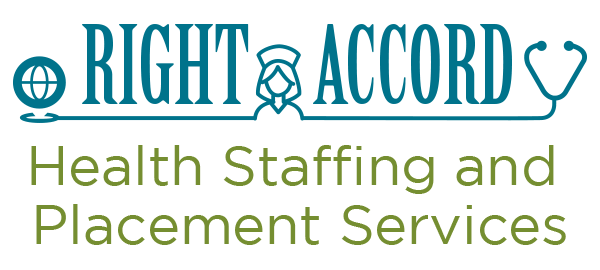Nursing in the Gig Economy: A New Frontier in Healthcare Staffing

Welcome to the era of the gig economy, a landscape that has expanded far beyond ride-sharing and freelance writing.
In recent years, this model has found its way into healthcare, reshaping the traditional notions of nursing employment. In this blog, we’ll dive into the gig economy model in nursing, exploring its implications for temporary staffing in the ever-evolving world of healthcare.
Understanding the Gig Economy Model
The gig economy, characterized by short-term and flexible work arrangements, has revolutionized how we think about employment. In nursing, this translates to a shift from traditional full-time positions to more flexible, temporary assignments. Let’s unpack what this means for both nurses and healthcare facilities.

1. Freedom and Flexibility for Nurses
Embracing the gig economy offers nurses newfound freedom. Instead of committing to rigid schedules, they can choose assignments that align with their preferences and lifestyle. This flexibility is particularly appealing for nurses who value work-life balance and desire control over their schedules.
2. Meeting Fluctuating Staffing Needs
For healthcare facilities, the gig economy model provides a dynamic solution to address fluctuating patient volumes. The ability to scale up or down based on demand allows hospitals and clinics to maintain optimal staffing levels without the constraints of traditional employment structures.
3. A Broader Talent Pool

With the gig economy, healthcare facilities gain access to a broader talent pool. Nurses with diverse skill sets and specialties can be tapped into on a temporary basis, bringing a range of expertise to address specific patient needs or fill gaps in specialized areas.
4. Reducing Burnout and Enhancing Job Satisfaction
Traditional nursing roles can be demanding, often leading to burnout. The gig economy model allows nurses to take control of their workload, reducing the risk of burnout. This autonomy contributes to increased job satisfaction, as nurses can choose assignments that align with their interests and career goals.
5. Technology Facilitating Connections
Technological advancements play a pivotal role in the gig economy model for nursing. Online platforms and apps connect healthcare facilities with available nurses, streamlining the hiring process and ensuring a quick response to staffing needs. It’s a win-win for both parties, fostering efficient communication and collaboration.
6. Adapting to Short-Term Needs
Short-term healthcare needs, such as flu seasons or unexpected spikes in patient admissions, require swift and adaptable staffing solutions. The gig economy model excels in meeting these demands, providing healthcare facilities with the agility needed to respond promptly to changing circumstances.
7. Enhancing Diversity in the Nursing Workforce
The gig economy promotes diversity in the nursing workforce. Nurses from different backgrounds, cultures, and experiences contribute to a richer and more inclusive healthcare environment. This diversity can positively impact patient care and outcomes.
8. Challenges in Consistency of Care
While the gig economy offers flexibility, it also brings challenges. Consistency of care can be impacted when patients are attended to by a rotating cast of temporary nurses. Healthcare facilities must implement robust communication and orientation processes to maintain quality care standards.
9. Navigating Legal and Regulatory Aspects
The gig economy in nursing necessitates careful navigation of legal and regulatory frameworks. Compliance with licensing, certification, and labor laws is paramount to ensure the ethical and legal employment of temporary nursing staff.

10. Professional Development and Continuing Education
The gig economy shouldn’t hinder professional development. Healthcare facilities and nurses alike should prioritize opportunities for continuing education and skill enhancement. A commitment to ongoing learning ensures that temporary nursing staff remains competent and aligned with industry standards.
11. The Role of Nurse Entrepreneurs
With the gig economy comes the rise of nurse entrepreneurs. Nurses can leverage their skills and expertise on a freelance basis, offering specialized services or creating niche solutions to meet specific healthcare needs. This entrepreneurial spirit adds a new dimension to nursing careers.
12. Building Trust in Temporary Relationships
Establishing trust is crucial in temporary nursing assignments. Open communication, clear expectations, and a supportive work environment are key factors in building trust between temporary nurses and healthcare facilities.
13. Addressing Mental Health and Well-being
Mental health is a priority for both nurses and healthcare facilities. The gig economy model should be accompanied by supportive measures to address the mental well-being of temporary nurses, ensuring they feel valued and connected during their assignments.
14. The Future of Nursing Workforce
As the gig economy continues to reshape the nursing landscape, the future holds exciting possibilities. Evolving models of employment, continued technological advancements, and a focus on work-life balance are likely to redefine the expectations and experiences of nurses in the workforce.
15. Choosing Right Accord Senior Services for Your Gig Economy Needs
In this new frontier of nursing employment, consider Right Accord Health Staffing and Placement Services as your partner. With a commitment to excellence and a personalized approach, we connect healthcare facilities with temporary nursing talent, ensuring a seamless and efficient staffing process. Our dedication to supporting both nurses and healthcare facilities makes us the right choice in navigating the gig economy model in nursing.
Conclusion
In conclusion, the gig economy model in nursing brings both opportunities and challenges. By embracing flexibility, leveraging technology, and prioritizing the well-being of nurses and patients, we can navigate this new frontier in healthcare staffing with enthusiasm and adaptability. Welcome to a future where the gig economy and nursing coalesce to create a more dynamic and responsive healthcare ecosystem.
Let’s Get Started
Ready to become a US licensed nurse? Let us help you get started! Visit our website to learn how you can begin your journey as an American RN today.
In my previous Blog, I talked about the 3 Steps on Applying for Nursing Job in the USA. Check the link if you haven’t read it yet.
But if you’re interested to watch the full detailed 3-part videos in advance, here is the way to register and get your exclusive access:
 About the Author
About the Author
Rosemarie Tamunday Casanova, RN, BSN, MHA – CEO
I have been a nurse for over three decades and have worked in various settings, including long-term care facilities, teaching hospitals, and trauma centers. Over the years, I have held several critical care positions and even earned a master’s degree in Health Administration. My journey in entrepreneurship began in 2000 when I co-founded a staffing and recruitment agency with my partner, Health and Technology Professionals.
After relocating to Florida, I established my own Home Care Agency and have been operating it successfully for over a decade. Despite our success, I have always been aware of the ongoing need for registered nurses in the US. This led us to reignite our recruitment services and assist international registered nurses in finding employment in the United States.
